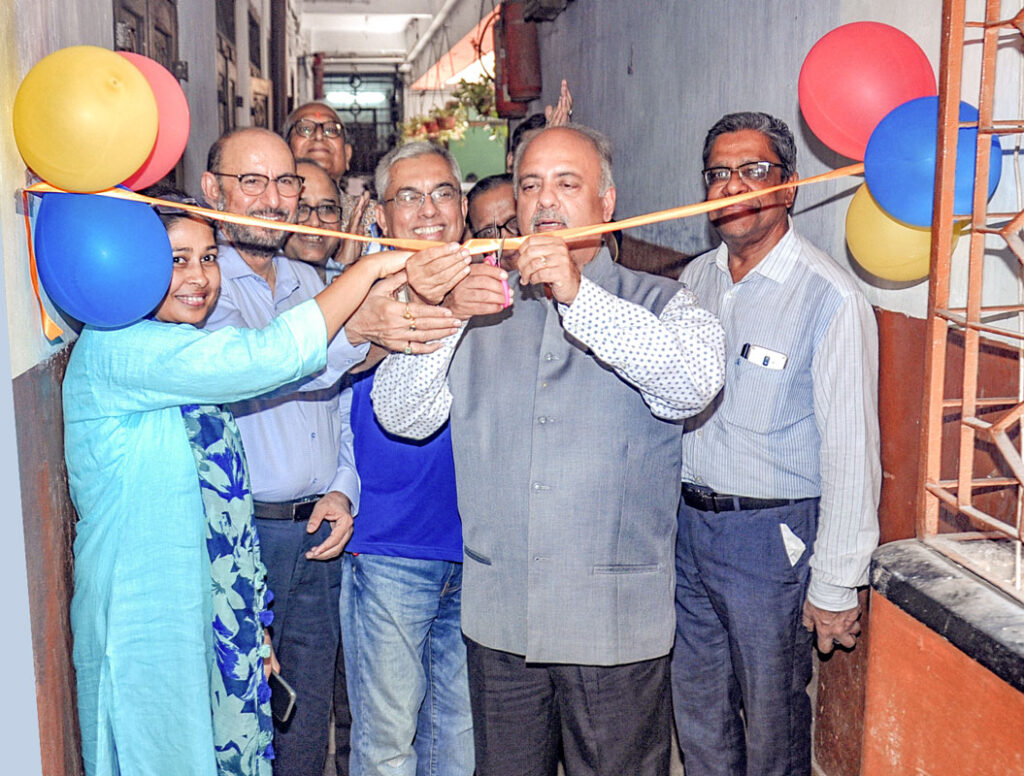Over 10,000 students in rural Kolkata now enjoy better sanitation and hygiene, all thanks to a mega $142,600 global grant project implemented by RC Belur, RID 3291. The programme, initiated in April 2019 and completed in August 2023, brought clean water, sanitation and hygiene (WASH) to 20 schools across six revenue districts. “The project was a significant investment in the future of these children,” smiles project chair Vishnu Dhandhania.

Shahanara Khatoon (9) is excited that Rotary has built toilets in her school, the Purba Bharatpur Primary School in Murshidabad. “Everyday I would hold on for half an hour to reach home and relieve myself because there was no toilet in the school. Now it is a huge relief for all of us. We can drink as much water as we want because we have toilets here now, and we can wash our hands and face after playing, instead of remaining dirty, because Rotary has installed handwash stations in our school,” she says. Less than 20 per cent of schools in Murshidabad have separate toilets for girls. Shared-gender restrooms and poor overall sanitation discourage girls’ attendance in schools, says Dhandhania.
Everyday I would hold on for half an hour to reach home and relieve myself because there was no toilet in the school. Now it is a huge relief for all of us.
— Shahanara Khatoon, a student
An important aspect of the project was behaviour change achieved through hygiene training in schools. Vital lessons such as handwashing with soaps, using water in toilets, personal hygiene and waste management were imparted to schoolchildren through fun activities, storytelling and interactive sessions.
A teacher at Saradapally Free Government School describes how the project has transformed children’s behaviour in his school. “Earlier the students would cursorily wash their hands with water and wipe them on their clothes gathering more dirt. Soap was not readily available on the wash basins and the students never asked the teachers for it. But now, after the WASH project was introduced, they not only demand soaps, but also wash their hands the correct way.”
Dhandhania shares how Nita Dey, headmistress of the Barai Balika Vidyalaya, inspired not just her staff but also the parents of students to take an interest in the WASH project in her school. The school had run out of soaps and cleaning items, and did not have a ready fund to purchase the next stock immediately. So Nita bought the soaps from her own pocket, and the teachers also chipped in. “It is a small cost but a big move that signals a change in the mindset of the teachers. Now a ‘soap bank’ is in place at the school where everyone — students, parents and staff — contribute soaps and hygiene items. Students even give a bar of soap to celebrate their birthdays!”
Sanitation and MHM
In Kalighat Mahakali Patshala, a secondary school for girls, located close to the Kalighat temple, students were shy to discuss menstrual health and hygiene. The trainers broke the taboo when they started narrating their own experiences. The girls felt confident to speak and soon there were animated discussions about sanitary pad usage, its disposal and the problems they face. The school now has a sanitary pad vending machine and an incinerator. The girls feel empowered to drop a coin and take out a pad whenever they need to.
Similarly, boys in Shree Maheshwari Vidyalaya, a secondary school in the Burrabazar area in Kolkata, have started making their own trash cans for their classrooms. Each classroom now has two bins, one for biodegradable products and one for plastic and other disposables.
The WASH GG project included construction of 35 gender-specific toilet blocks, 21 handwash stations, 18 drinking water stations and nine sanitary pad vending machines and incinerators. The participating clubs included RC Belur, the lead club, along with RCs Calcutta Chowrenghee, Calcutta North Suburban and Chandannagar in India, and RCs Danville/Sycamore Valley, Danville, Richmond, Alamo, San Ramon and San Ramond Valley, from the US.
“The project’s success will truly reflect on the children and their health, with an active participation of the entire community,” says Ranjit Chakravorty, member of RC Danville/Sycamore Valley, and the force behind so many US Rotary clubs joining the project. Egged by the transformation Dhandhania is now working on making another set of 20 schools WASH ready.








